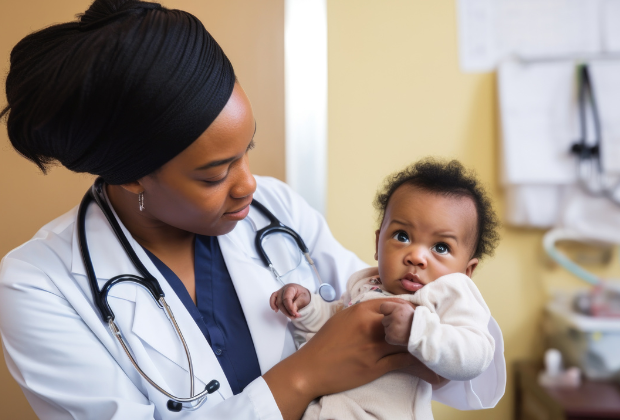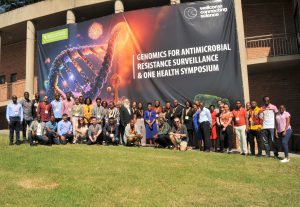The National Institute for Communicable Diseases, Johannesburg contributed three papers to a collection of papers published in the BMC Medicine peer-reviewed journal on 15 May 2023. This supplement focuses on describing the burden and cost of respiratory syncytial virus (RSV) illness in children.
RSV is a major cause of respiratory illness and death in young infants, particularly in low- and middle-income countries. RSV causes 33 million severe respiratory infections, 3.6 million hospitalizations, and 101,000 deaths in children under five years of age each year, as well as significant strain on livelihoods and health systems. Advancing prevention is especially important for low- and middle-income economies where nearly 98% of child RSV deaths occur—almost half before six months of age.
New technologies like vaccines and monoclonal antibodies (mAbs) have just completed clinical trials. Some have recently been licensed in Europe and the USA, others are on the pathway to licensure. These products are aimed to protect infants against severe RSV in the few months of life.
“These studies further confirm the importance of preventing RSV disease as early as possible in infancy, especially in places where health systems are strained and many children get sick or die from RSV without ever making it to the hospital,” says Dr. Bruce Innis, Global Head of Respiratory Infections and Maternal Immunization at PATH’s Center for Vaccine Innovation and Access. “As new products for RSV disease prevention in early life emerge from development and countries consider how they might fit within their public health agendas, these new data provide nuances useful for introduction and delivery strategic planning across different low- and middle-income contexts.”
To better understand the impact and value of RSV interventions in low- and middle-income countries, more information is needed about the overall burden in these areas, particularly about the age at which infants get RSV.
A consortium consisting of investigators from South Africa, Kenya, Vietnam, Australia, the United Kingdom and the United States of America has completed studies in South Africa, Kenya and Vietnam to better understand the impact and value of RSV vaccines and monoclonal antibodies.
Specifically, studies from South Africa included a burden of disease study and a costing of RSV study, these data were used in a cost-effectiveness model in collaboration with the London School of Hygiene and Tropical Medicine.
These data collected in a South African setting provide policymakers with detailed and important data to support the introduction of prevention technologies when they become available,
- There is a large burden of disease outside of hospitals which has been poorly recorded in the past.
- The majority of cases occur in younger infants (<3 months of age), so new technologies aimed at the young infant could have a substantial impact and be cost-effective.
- Cheryl Cohen said “These results show the urgency of ensuring that low- and middle-income countries have access to life-saving RSV preventive interventions as fast as possible. RSV vaccines could lead to a major reduction in respiratory hospitalisations and deaths for South Africa, where RSV is the most important cause of hospitalisation for lower respiratory illness in young children.”
In an accompanying editorial, Padmini Srikantiah and Keith Klugman from the Bill & Melinda Gates Foundation said, “As new, efficacious immunization products reach the market, affordable pricing, as well as improved estimation of disease burden and the full potential and cost-effectiveness of RSV prevention in the hardest hit geographies, will be critical to inform country adoption and enable maximum impact against infant disease and mortality globally.”
The studies were funded by a grant to PATH from the Bill & Melinda Gates Foundation. The investigators have no declared conflicts of interest.
The primary data collection was nested in our surveillance for respiratory illness and is partly funded by the Centers for Diseases Control and Prevention (CDC), Atlanta, USA





